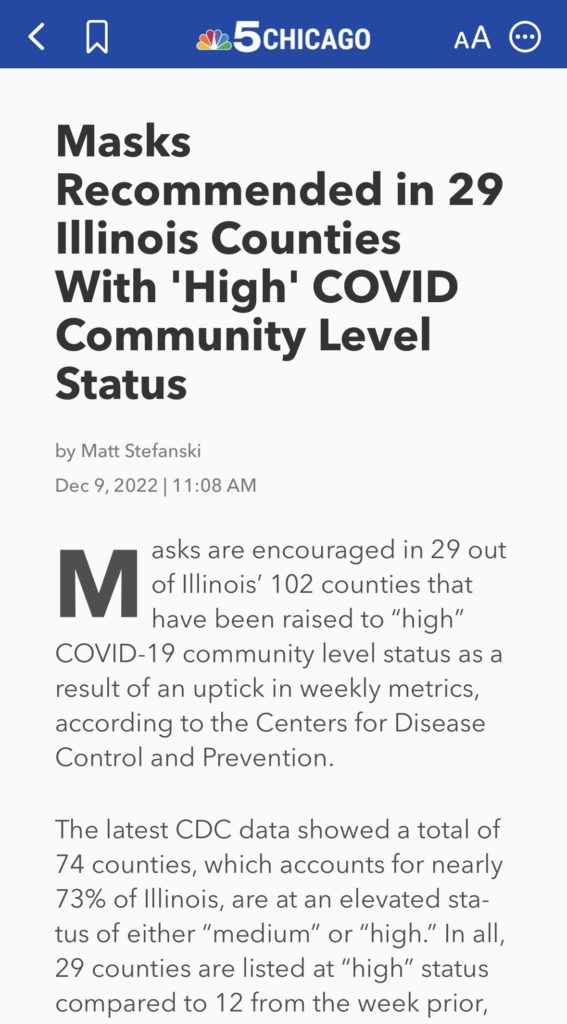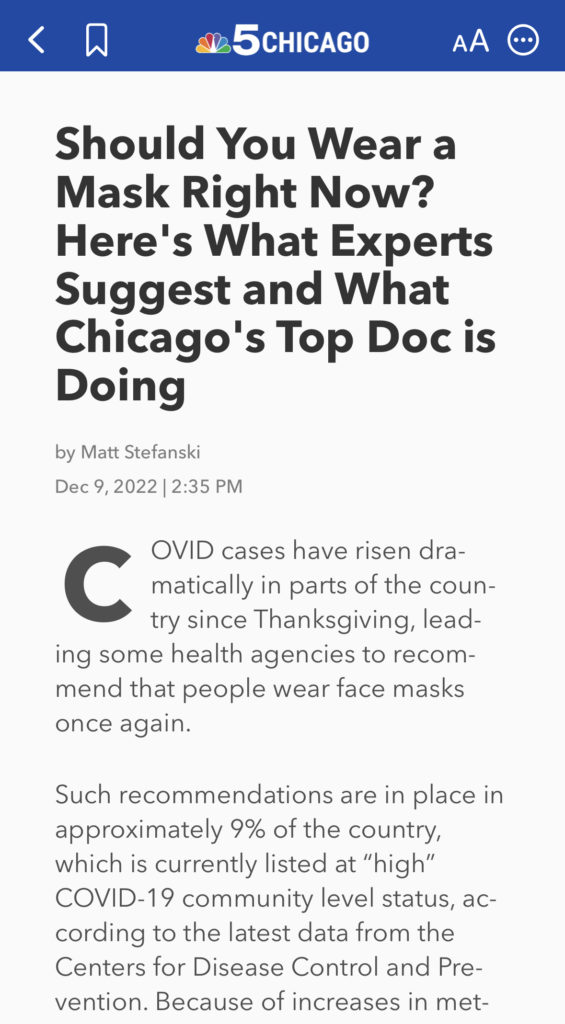Why COVID-19 news can drive people bonkers: You read one thing one place and another thing elsewhere. Notice below how one title suggests contemplation (“should you” and “suggest”) while the other strikes more concern (“recommended” and “high”). Further notice the timing of the article, where a question is asked after statement was made earlier in the day.


Part of the problem is “framing” or how the information is set. Here we have a prime example of this: same source, same author, same day — and yet, a reader might get different impressions from both.
In short, the recommendations remain the same: If you’re immunocompromised, living with someone who is immunocompromised, are mature in years, or have any other risk factor, it’s better to be safe than not — particularly in large groups and dining situations.
Messaging has been boggled (and reframed) so many times that any news these days can be confusing, especially since a plateau of cases can mean the media reshaping rather than reporting. Thus, you’re at the mercy of whatever perspective or “angle” is being used.
The positive is that this explains why well-meaning people can have such divergent views. If you’ve seen one source and someone else sees another, it’s no wonder why there remains confusion. (In fact, some will agree or disagree with either one of the examples provided here.)
Of course, the best solution for your personal health is ask a professional (your doctor) what is best for you and your family, rather than perusing the internet. But even more important is to continue living according to love: caring for others, even forgiving and blessing those of divergent views, and seeking the good of one another.
After all, according to Jesus, the second greatest commandment is to love your neighbor, often at your own expense, even when you disagree.

